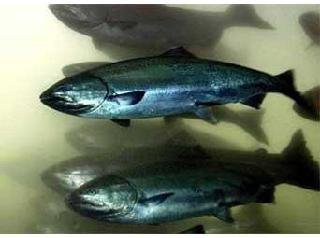U.S. Court Of Appeals rules for the Council in lawsuit over the 2014 Fish and Wildlife Program
The Council's decision to approve the program was consistent with the Northwest Power Act, court rules
- May 23, 2017
- John Harrison

On July 19, a three-judge panel of the U.S. Court of Appeals for the Ninth Circuit issued a memorandum opinion rejecting all arguments made by petitioner Northwest Resource Information Center (NRIC) against the Council's decision to approve the 2014 Columbia River Basin Fish and Wildlife Program.
“We are pleased with the Court’s decision today,” Council Chair Henry Lorenzen said. “The court confirmed that the Council properly followed the Northwest Power Act requirements in approving the 2014 Fish and Wildlife Program, and supported the Council’s understanding of the relationship between the Power Act and the Endangered Species Act.”
The Council, an interstate agency of Idaho, Montana, Oregon, and Washington, is required by the Northwest Power Act to develop a program to protect, mitigate, and enhance fish and wildlife adversely affected by hydroelectric dams on the Columbia River and its tributaries while assuring the region an adequate, efficient, economical, and reliable power supply.
The Council adopted the most recent version of the Fish and Wildlife Program in October 2014. In May 2015, NRIC filed a petition in the Ninth Circuit, where the Northwest Power Act stipulates that lawsuits against the Council originate. NRIC sought to have the court remand the program to the Council. The NRIC, the Council, and a number of intervenors in support of the Council’s decision filed briefs with the Ninth Circuit in 2016. Oral argument before a panel of judges took place in Seattle this May.
In denying NRIC's petition the Court ruled that:
- The Council correctly interpreted its mandate under the Northwest Power Act as distinct from the substantive requirements of the Endangered Species Act.
- The Program includes many quantitative biological objectives, and the fact that some are incorporated from federal biological opinions under the Endangered Species Act "does not undermine their validity or otherwise violate the Power Act."
- The Council properly rejected certain recommendations for measures to include in the Program, such as the Nez Perce Tribe’s proposal to further study the removal of the four federal dams on the lower Snake River, the recommendation from the state of Oregon and the Nez Perce Tribe regarding an experimental spill program at Snake and Columbia river dams, and a proposal to operate John Day Dam at minimum operating pool.
- The Council properly refused to include in the Program direction to "undertake any and every environmental mitigation step until such point as the region’s economical and reliable power supply is threatened " because there is no requirement in the Power Act to do so.
- The record does not suggest that any Council member rejected any particular recommendation "because he or she believed that supporting such recommendation would be a breach of his or her obligations under the Columbia River Fish Accords,” which the Bonneville Power Administration signed with various states and tribes in 2008.
The three judges who presided at the oral arguments in May were Margaret McKeown, who is based in San Diego and was appointed by President Clinton, Carlos Bea from Northern California, and N. Randy Smith of Idaho, both appointed by President George W. Bush.



